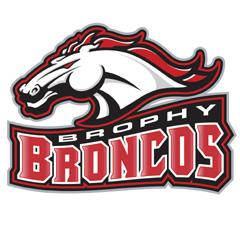By Mason Smith ’11
THE ROUNDUP
When an athlete goes through an hour workout or a game that could last hours, their bodies lose necessary nutrients.
Eating the right foods before and after a workout can provide an athlete with more energy.
However, for different sports, or athletes, there are different steps that each should take to get the highest performance.
During a workout, an athlete’s tissue will break down a little bit, so in order to help gain the tissue back they must have a higher intake of protein.
“A cross-country runner uses energy differently than a football player and needs less body mass. Therefore, nutrition needs will be different. Everyone needs the proper amount of the essential nutrients though,” said Mr. Chris White, head athletic trainer at Brophy, wrote in an e-mail.
A football player still needs protein, fruits, vegetables, etc. But the football player will have more protein due to the fact that they had a workout and need to replace those essentials.
This does not mean that the athlete should overstuff him/herself when they eat.
“The key is getting essential nutrients in the proper amounts,” Mr. White wrote.
Here at Brophy, athletes are on a small diet plan as well as having the BODPOD, a machine that totals the percentage of body fat.
“I eat fruit every day, prefer water to any other drink and I try to eat home cooked meals as frequently as possible,” said varsity football player Jordan Graves ’11.
Brophy is not the only place where you will find athletes on diets. Professional athletes are also on diets for their specific sport.
“A professional athlete who trains very intensely year-round may have higher caloric needs and require more protein and other nutrients,” Mr. White wrote.
“As an athlete gets older, metabolism slows, which tends to lower caloric need. Some of our athletes train intensely year round, so their needs are very similar to professional athletes.”


















